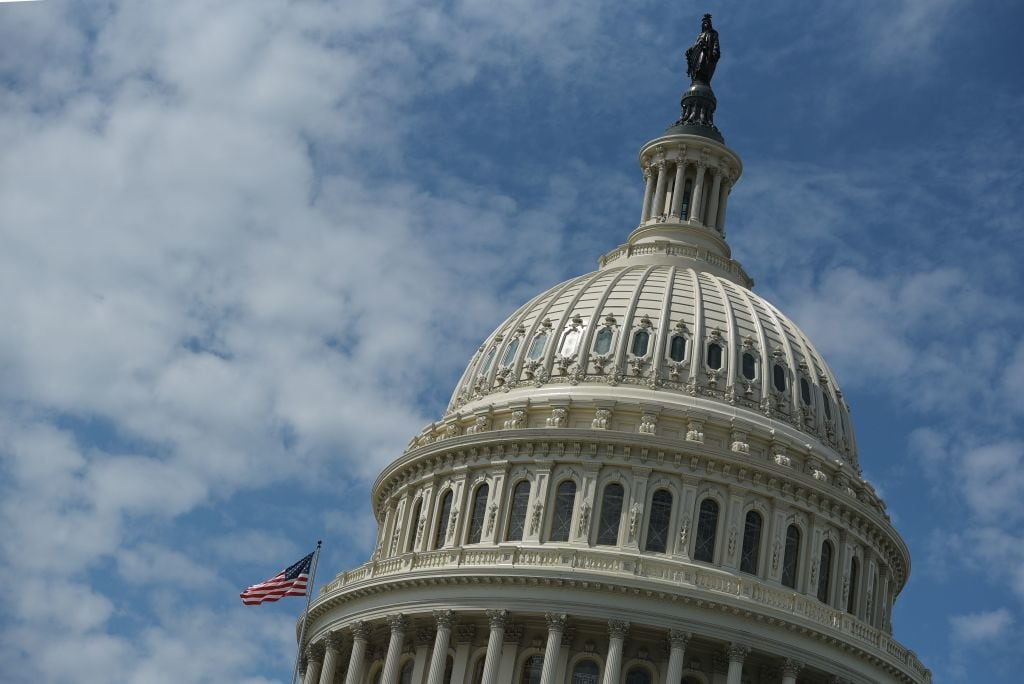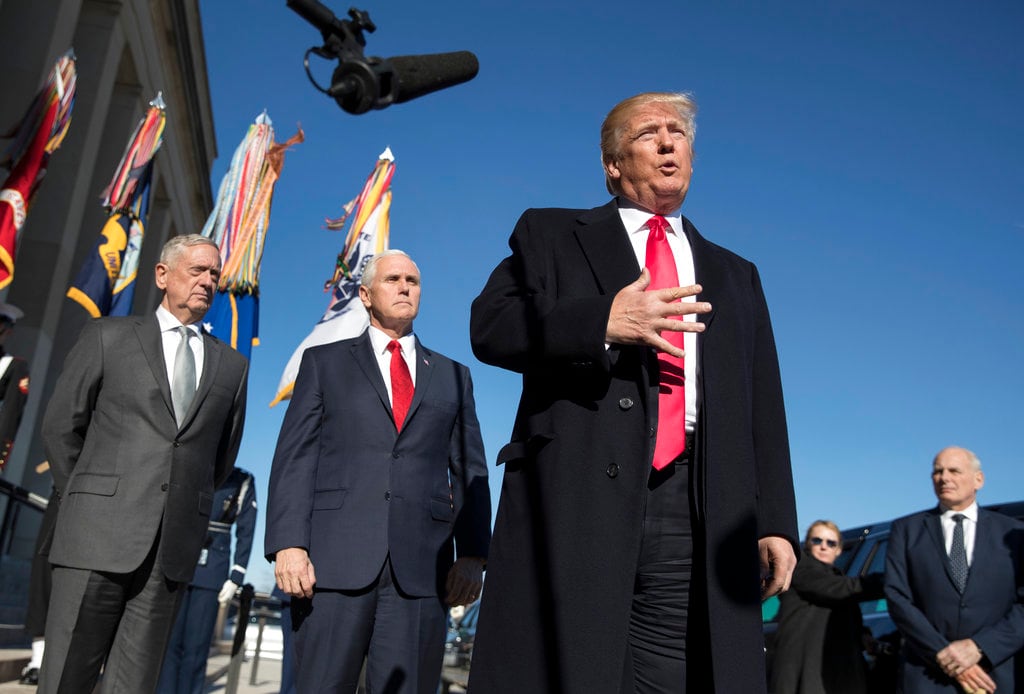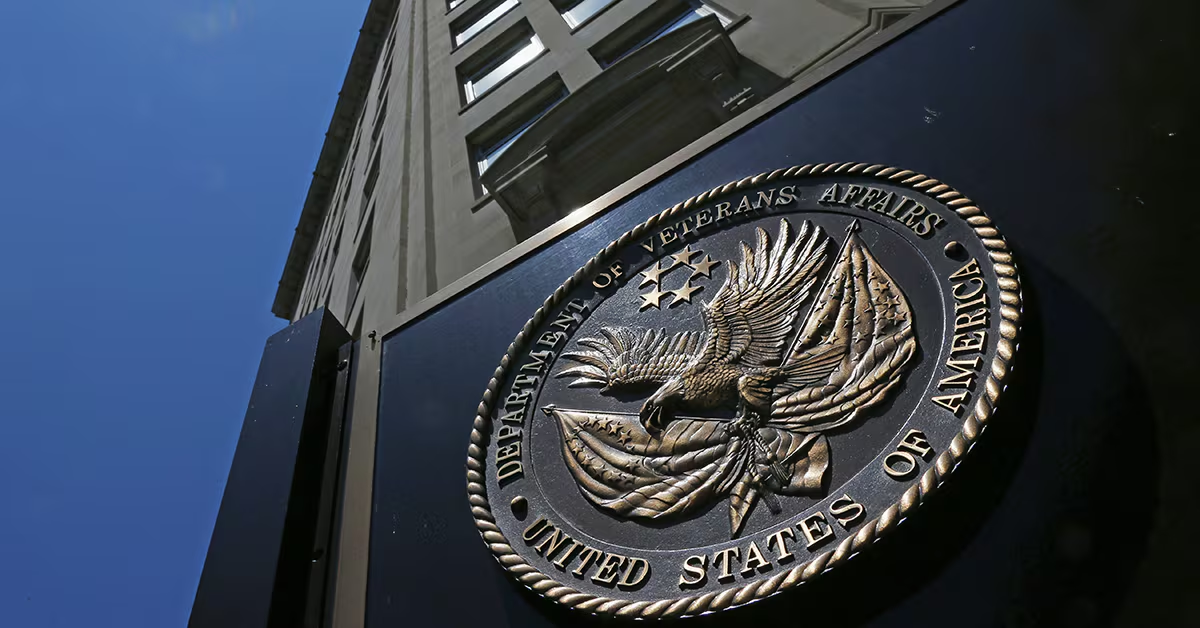Military members worldwide will continue to report to work if the government shuts down, but they won’t be paid for that work until it reopens, barring a change in law.
As the government moves toward a possible shutdown tonight, Defense Department officials have issued guidance that includes which military facilities, benefits and programs stay open and which won’t if the deadline passes.
The short version: Operations “essential” to national security will continue, as will all preparations for troops getting ready for deployment. But except for certain other operations that are necessary for safety and protection of property, other activities will be be shut down.
RELATED

Civilian personnel who work in operations that are considered essential will stay on the job, but like troops, they won’t be paid until Congress makes the funds available.
Reservists in Active Guard Reserve jobs would continue to report for duty, but reserve-component personnel would not perform inactive duty requiring obligation of funds, except where the duty supports an activity deemed essential.
Some examples of essential activities, per the guidance:
- Recruiting activities.
- Military Entrance Processing Stations.
- Basic training.
- Law enforcement/counterterrorism operations, and other safety-related operations such as fire protection, nuclear safety, air traffic control, search and rescue, and explosive ordnance disposal.
- Many counseling services, including substance-abuse assistance, emergency counseling and religious services.
- Basics such as utilities, housing and food services, including trash removal.
Mortuary affairs and other services to care for the fallen and their families also are considered essential, but the $100,000 death gratuity paid to survivors of the fallen may not be paid during the shutdown.
RELATED

Preparations to discontinue nonessential activities is underway in an “orderly and deliberate fashion” at DoD.
Here are some of the ways the shutdown will affect military members and their families.
Pay. Military personnel wouldn’t be paid until the shutdown ends.
This could change if Congress passes a law that requires the military to be paid during the shutdown, as they it in 2013. Personnel are paid on the 1st and 15th of each month.
In the past, a number of financial institutions that serve the military community have stepped up to fill the gap, in some cases offering to advance the active-duty pay, then recouping it later, when retroactive pay caught up.
Military relief societies also have helped service members and families fill financial gaps during shutdowns.
Retired pay. Not affected. It comes from a different pot of money.
PCS and TDY. Military moves and temporary duty travel are generally canceled except for service members traveling to activities and operations determined to be essential to national security. Any TDY travel or conference participation scheduled before the shutdown is to stop as quickly as possible.
Health care. Military treatment facilities will continue to provide inpatient care as well as acute and emergency outpatient medical and dental facilities. Private sector care under Tricare isn’t affected.
Commissaries. Only overseas commissaries and those in remote U.S. locations where are no other reasonable sources of food available for military personnel would remain open. Information was not immediately available about which stores would be closed; during the 2013 shutdown, stateside commissaries, including those in Alaska and Hawaii, were closed.
If there is a shutdown, the commissaries forced to close will follow an orderly procedure to allow store staffs to reduce stocks of perishables, safeguard equipment and facilities, and make other necessary preparations,, said Kevin Robinson, spokesman for the Defense Commissary Agency. .
In 2013, commissaries were open an extra day after the shutdown took effect. They were packed with customers.
“In the event of a shutdown, we will do our best to support our military communities whenever and wherever possible,” Robinson said.
RELATED

Exchanges. They won’t close, because they don’t rely on taxpayer dollars. But they will try to ease some of the strain on the customers affected by commissary closures.
For example, Army and Air Force Exchange Service officials already are working up emergency orders for key items such as diapers, bread, milk and frozen food, and working with distributors to speed up those deliveries for early next week, AAFES spokesman Chris Ward said.
RELATED

DoD schools. The 166 DoD schools overseas and stateside will remain open. It’s not clear whether the eight district offices around the world, would be allowed to continue to operate; a shutdown likely would curtail operations at regional offices and at headquarters, a DoDEA spokesman said.
Death gratuities. These $100,000 payments may not be made immediately to the designated survivor of a service member who dies on active duty.
When those payments went unmade in 2013, the Fisher House Foundation stepped in to fill the gap. After the government reached a deal to reimburse the charity, Congress eventually passed a law that restarted the payments.
Child care. This might be a mixed bag: In 2013, each installation determined whether child development centers continued to operate.
As in the past, the new DoD guidance allows morale, welfare and recreation activities that receive any taxpayer funding to operate during a shutdown if they are deemed necessary to support essential operations, such as mess halls, physical training and child care activities required for readiness.
More MWR. MWR activities that are funded entirely by nonappropriated funds, not by taxpayer dollars, wouldn’t be affected by the shutdown. A bowling center or golf course funded by customers likely would remain open, for example.
[How often does Congress use continuing resolutions to prevent government shutdowns?]
DoD civilians. DoD civilians who aren’t required to carry out or support activities deemed essential will be furloughed. In 2013, about 400,000 DoD civilians ― including military spouses, veterans and retirees ― were furloughed.
Military academies. Students can continue to attend classes only if the instructor is military or is a contractor paid with prior-year funds,
Karen has covered military families, quality of life and consumer issues for Military Times for more than 30 years, and is co-author of a chapter on media coverage of military families in the book "A Battle Plan for Supporting Military Families." She previously worked for newspapers in Guam, Norfolk, Jacksonville, Fla., and Athens, Ga.





